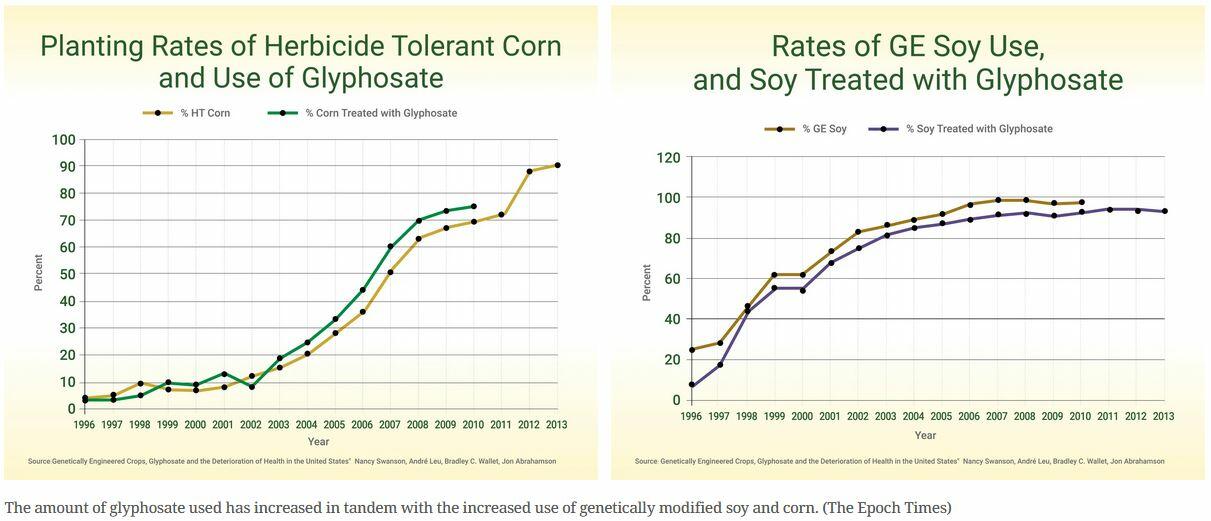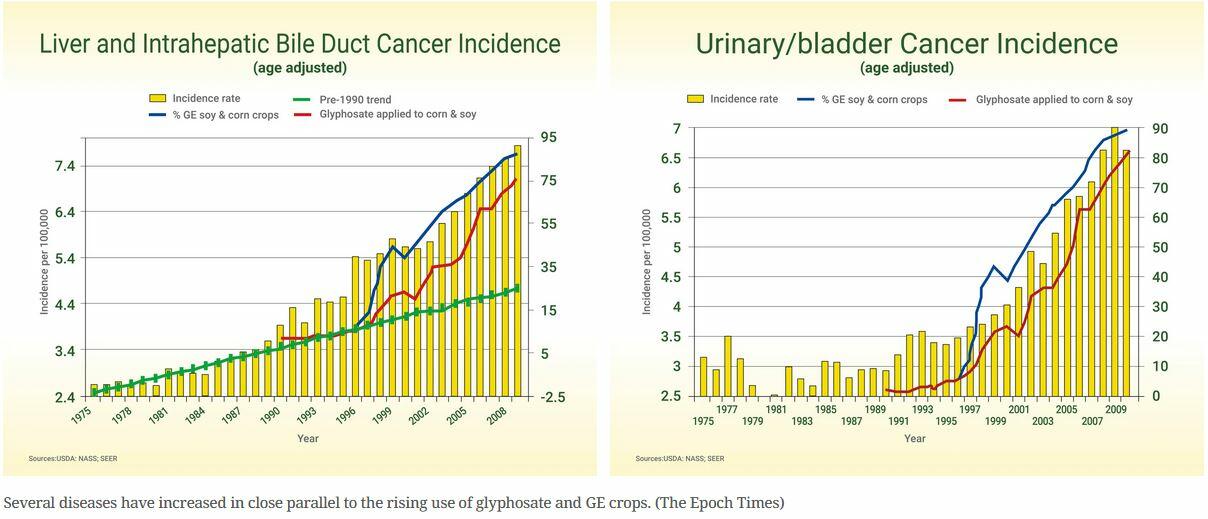The US-Mexico Dispute Over GM Corn Safety Could Transform American Agriculture
 Authored by Amy Denney via The Epoch Times (emphasis ours),
Authored by Amy Denney via The Epoch Times (emphasis ours),
Mexico’s effort to keep genetically modified corn out of the country is triggering a trade dispute with the United States and Canada that could affect the future of agriculture.
The trade dispute hinges on a key question: whether genetically modified (GM) corn poses a threat to human health.
U.S. trade representatives argue it does not and wants to force GM corn into Mexico. Given that GM seed is used in 90 percent of U.S. crops, the dispute could have far-reaching effects should Mexico win. Beyond the U.S. agricultural sector, it could damage the German and Chinese companies that make and sell those seeds.
The Epoch Times has reached out to Bayer, the company that bought seed giant Monsanto, and Chinese state-owned Syngenta, but has yet to get a response.
A Battle Over Biotechnology
Corn has fed previous trade battles between Mexico and the United States, with Mexican producers previously protesting the North American Free Trade Agreement (NAFTA) for allowing American corn in without restriction. In the latest chapter, Mexico issued a presidential decree in February 2023 that bans GM corn in tortillas and dough and signaled the country’s intention to gradually replace GM corn in all animal and human foods.
Natural Blaze is Google-Free — We Need Your Support
Contribute Just $1 Per Month at Patreon to Aid the Cause of Health Freedom
Canada, which is deeply integrated into U.S. and Mexican agricultural trade, and the United States both opposed the ban.
Mexico has kept genetically modified corn from being grown within its borders for 25 years in an effort to protect both citizen health and ancient strains of maize. Corn is a staple crop eaten in 89 percent of Mexican meals.
The United States has largely disregarded health concerns arising from GM crops and has spent the past year working to prove Mexico’s 2023 decree violates the United States-Mexico-Canada Agreement (USMCA).
The restrictions, originally slated to go into effect this year, set off a disagreement now in the hands of a USMCA trade panel after Mexico and the United States failed to resolve it through negotiations.
The United States contends that there’s no scientific evidence that GM corn is unsafe to eat, a claim Mexico refutes. Mexico says the United States hasn’t presented any evidence of GM corn’s long-term safety, particularly when eaten at high levels.
Corn consumption is ten times higher in Mexico, raising concerns among its medical and governmental leaders about research linking GM crops to health issues.
Clashing Visions and the Future of Agriculture
The trade disagreement highlights clashing ideological values and interests. Mexico has concerns for public health and Indigenous maize. The United States aims to protect American farmers, food security, and the future of agricultural biotechnology.
Ultimately, the three-member USMCA panel has to sort through the arguments, science, and finer points of Indigenous legal rights to make a decision. Lucy Sharratt, coordinator of the Canadian Biotechnology Action Network, said the ruling could generate cultural and environmental shockwaves.
“If the panel pays attention to the science, they should come to the same conclusion as the Mexican government. If they’re swayed by politics and the power behind the technology, it’s going to be difficult for them to see the reality of the science,” she told The Epoch Times. “This is a hugely significant decision the panel has before them.”
The Canadian Biotechnology Action Network, a group that raises education about the genetic engineering of food, was originally invited to share its opinion with the trade tribunal, but the offer was rescinded at the request of the U.S. and Canadian governments.
Mexico’s Case
Mexico filed a 200-page response to the U.S. trade violation complaint, which many observers say fulfilled the onus of its argument. It offered 66 articles in peer-reviewed journals pointing to GM corn’s associated health risks including increased damage to organs, cancer, antibiotic resistance, and reduced nutritional content.
Mexico’s decree also included a ban on glyphosate originally intended to go into effect on April 1, but the government pushed back that date while researching alternatives available in suitable quantities.
GM corn is tightly wed to glyphosate, the key ingredient in RoundUp and other herbicides. That’s because one of the most prominent traits in GM corn is resistance to glyphosate, the main ingredient in RoundUp. Monsanto, the German firm making most of the GM corn grown in the United States, calls the corn “Roundup Ready.” A rise in the use of glyphosate closely paralleled the rise in use of GM corn seed.
Additionally, Mexico’s report included 74 studies and papers on the risks of glyphosate, pointing to research documenting residues found on GM corn and concerns that the volume of corn Mexicans eat creates the need for a different safety standard. Mexico’s decree isn’t an outright trade ban but it does create the need for suitable replacements for both GM corn and glyphosate.
Though the language is vague, the decree calls for agricultural groups to offer input to Mexican agencies on how to design, promote, and implement alternatives to glyphosate.
The Glyphosate Issue
Glyphosate has become an important topic of research, and studies now suggest it has several potential consequences on human physiology.
A 2014 study published in the Journal of Organic Systems looked at two decades of information on the rising rates of chronic diseases and their association with glyphosate use. Correlation doesn’t prove causation, but graph after graph of epidemiological data of 22 diseases reveal sharp increases that coincide with the accelerating use of glyphosate.
The study found highly significant correlations between glyphosate applications and hypertension, stroke, diabetes prevalence and incidence, obesity, Alzheimer’s, autism, multiple sclerosis, inflammatory bowel disease, several types of cancer, intestinal infections, and more. Researchers used the Pearson correlation coefficient, the most common way to measure correlation.
Additionally, Roundup Ready corn and soy in the U.S. were also found to have highly significant correlations with many of the same diseases. The authors concluded that the results warrant additional research on these relationships.
Research done in Mexico has found glyphosate in the urine of children and adults, as well as evidence of it in industrial and native foods.
Unsatisfied With the Science
Mexico has objected to some of the research the United States was citing during negotiations, including sources that were not peer-reviewed, over a decade old, or funded by biotech companies. Mexico also raised concerns about the lack of long-term studies on humans eating GM corn, according to Timothy A. Wise, senior advisor for the Institute of Agriculture and Trade Policy (IATP).
Read more here…
Sourced from ZeroHedge




